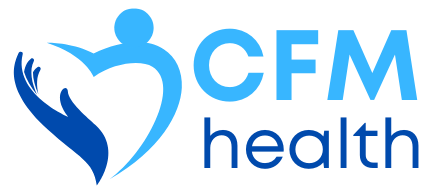Shop For Plans: +1 (708)888-0509
Free Quote: Click Here
We’re more than just insurance. Free Quote
Shop For Plans: +1 (708)888-0509
Free Quote: Click Here
We’re more than just insurance. Free Quote
The Affordable Care Act (ACA) was designed to make health insurance accessible and affordable for millions of Americans, including Florida residents. Whether you are an individual, a family, or someone transitioning from another type of coverage, understanding who qualifies for ACA in Florida can help you make the best decision for your healthcare needs. This article outlines the eligibility requirements, income limits, and important enrollment details to help you determine if you qualify for an ACA plan in Florida.
To qualify for ACA health insurance in Florida, you must meet certain criteria related to residency, citizenship, income level, and access to other health coverage options.
To be eligible for an ACA plan in Florida, you must:
Immigrants who have legal status, such as those with work visas, student visas, or asylum status, can qualify for ACA coverage. However, undocumented immigrants are not eligible to enroll in ACA plans but may access emergency Medicaid in certain cases.
One of the biggest benefits of ACA health insurance is the financial assistance available to reduce monthly premiums and out-of-pocket costs. To qualify for these subsidies, your income must fall between 100% and 400% of the Federal Poverty Level (FPL).
The exact numbers may change each year, but for 2024, the estimated FPL figures are:
| Household Size | 100% FPL | 400% FPL |
|---|---|---|
| 1 Person | $14,580 | $58,320 |
| 2 People | $19,720 | $78,880 |
| 3 People | $24,860 | $99,440 |
| 4 People | $30,000 | $120,000 |
Households earning below 100% FPL may not qualify for subsidies unless they meet special circumstances, such as being a lawfully present immigrant. Those earning above 400% FPL may still qualify for subsidies under the expanded ACA rules, which ensure that no one pays more than 8.5% of their income on premiums.
If you are offered health insurance through your job, you may still qualify for an ACA plan only if your employer’s plan is deemed unaffordable (meaning it costs more than 9.12% of your household income for individual coverage). Additionally, if your employer’s insurance does not meet ACA minimum coverage standards, you may be eligible for ACA subsidies.
Freelancers, independent contractors, and gig workers (such as Uber drivers, delivery workers, and consultants) often qualify for ACA coverage since they don’t receive employer-sponsored insurance. When applying, they must estimate their annual income to determine their eligibility for subsidies.
Individuals who earn too much to qualify for Medicaid but do not yet qualify for Medicare (under age 65) can enroll in an ACA plan. If you lose Medicaid eligibility due to increased income, you can transition to an ACA plan during a Special Enrollment Period (SEP).



There are two main times you can apply for an ACA plan in Florida:
Outside of Open Enrollment, you can still enroll in ACA coverage if you experience a qualifying life event, such as:
You typically have 60 days from the event to enroll in a new plan.
CALL ONE OF OUR LICENSED AGENTS TO SEE IF YOU QUALIFY!
ACA health insurance in Florida is an excellent option for individuals and families who meet income and residency requirements. If you do not have affordable employer coverage and earn between 100% and 400% of the Federal Poverty Level, you may qualify for premium tax credits and other cost-saving benefits. Make sure to apply during Open Enrollment or take advantage of Special Enrollment if you experience a major life change.
